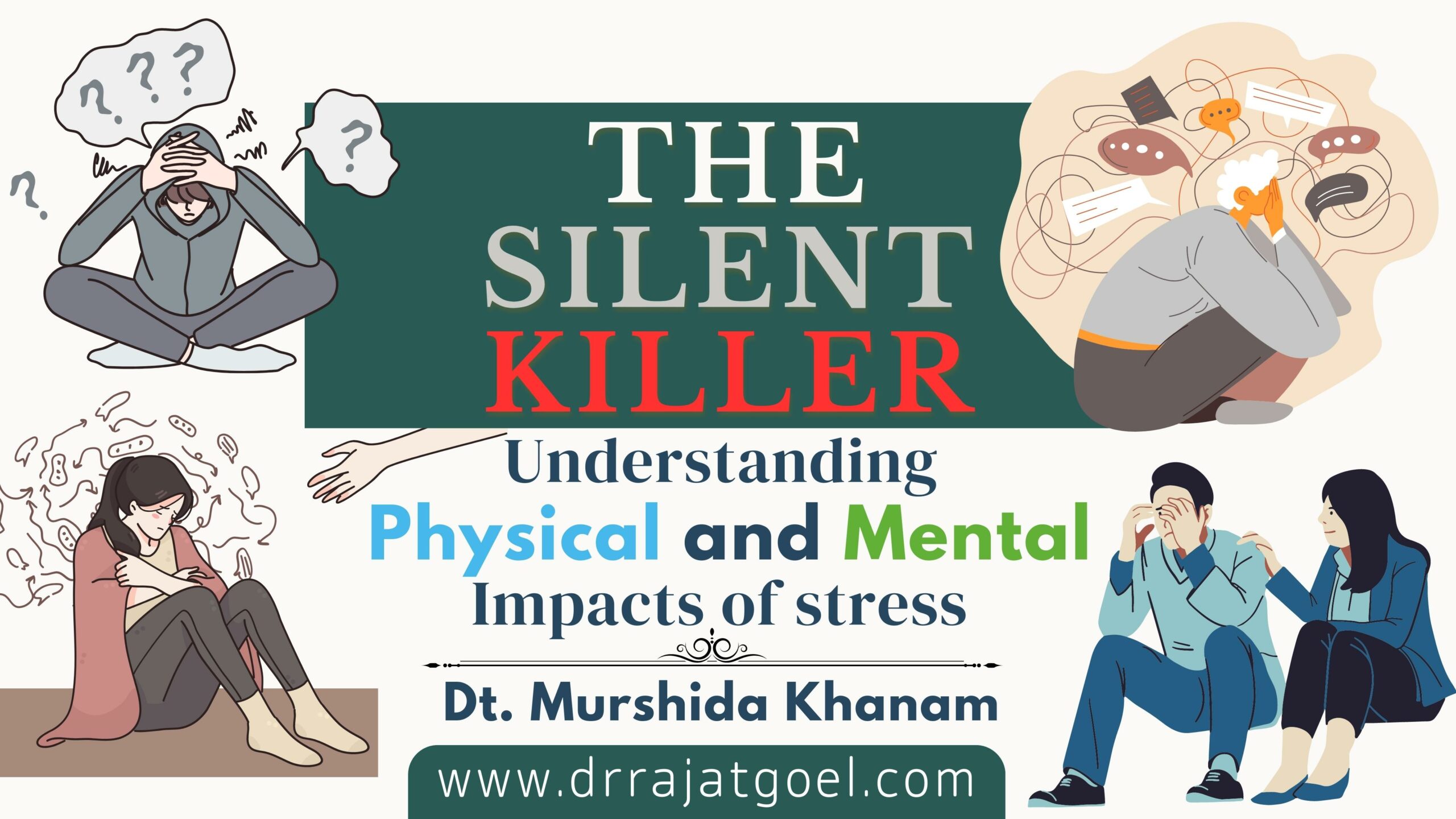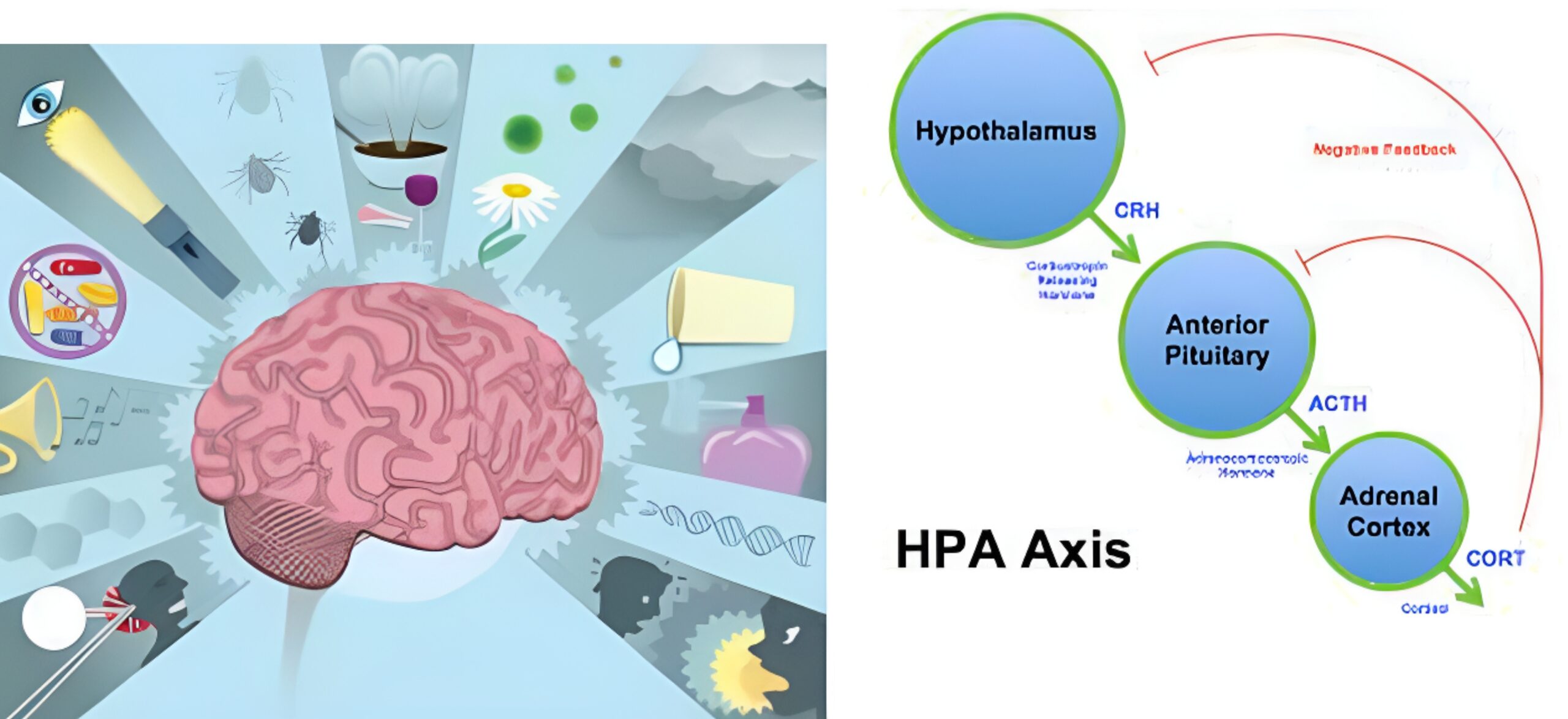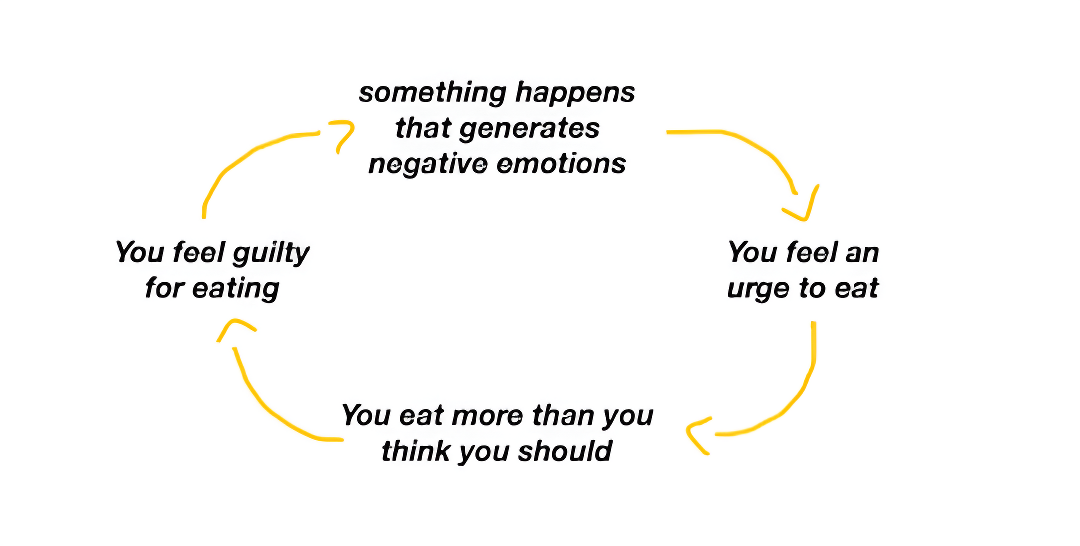
- Blog
-
by Murshida Khanam
Sometimes it happens that we are very tired, do not understand anything, feel low inside, get angry at every small and big thing. then there is nothing to worry about, you are just under stress.
But it is very important to address it as prolonged stress can lead to the onset of depression, anxiety or other major diseases.
Stress is usually termed as twentieth century syndrome, it is a natural response to a
challenging situation, whether physical or emotions, it is the body’s way of preparing itself to
respond to a threat or demand.
There can be more than one cause of stress such as health issues, financial problems, some sort of heartbreak, social issues or problems in office politics and so on.
There are various types of Stress i.e, good stress, acute Stress and chronic stress.
Acute Stress: it is when your daily routine gets affected. Anxiety, fear, and high bp can be seen for a short span of time.
Chronic stress: it persists for longer duration, it is experienced when outside pressure is more than the coping ability. Symptoms are: Palpitations started, high bp, fast breathing, no hunger or more hunger than generally, tunnel vision and so on.
How the brain responds to stress.
Additionally, stress can disrupt normal eating patterns, causing us to skip meals or eat at irregular times. When we’re stressed, we may turn to comfort foods that are high in sugar and fat. And at this time “emotional eating” begins!
Emotional eating is eating for reasons other than hunger. Stress demands comfort food, which begins with emotional eating, that for sometime makes you feel better but then it leads to feeling guilty or ashamed and in this way stress catches you again, hence a vicious cycle!
Then there are certain symptoms for ex: natural hunger can be satisfied with any type of food, once you’re full you stop eating and it causes you satisfaction. But in case of emotional hunger, it causes specific cravings such as pizza, burger, chocolates and so on, you eat more than you normally would, feel uncomfortably full, and leave you feeling guilty/ashamed.
How our gut responds to stress
Research has shown that the gut microbiomes or certain strains of bacteria in the gut can produce neurotransmitters like serotonin, which can help regulate mood and reduce anxiety. But prolonged stress can disrupt the digestive system, irritating the large intestine and causing diarrhea, constipation, GERD, IBS, peptic ulcer, food allergy and so on.
And because of this chronic level of stress, either it can cause weight gain or weight loss. High levels of cortisol stimulates fat and carbohydrate metabolism and thereby increases your appetite and hence weight.
So if we really want to manage stress, we should focus on managing our physical lifestyle.
1. Eat a nutritional diet: aim for food rich in magnesium, omega 3 fattyacid, vit.C, tryptophan, antioxidants and fiber. These can be found in spinach, almond, oranges, berries etc.
Magnesium: it can help regulate cortisol level and can be found in spinach and almonds.
Omega 3 fatty acid: it can help reduce inflammation in the body and improve mood and we can get it from salmon, chia seeds etc.
Vitamin C: it boosts the immune system and reduces the physical effects of stress and it can be found in oranges, strawberries and so on.
Tryptophan: it promotes relaxation and improves sleep quality. Turkey, banana are rich in tryptophan.
Antioxidants: strawberries, raspberries, blueberries, and blackberries are loaded with antioxidants and vit.C
Fiber: fruits, vegetables, oats, legumes, seeds, nuts, whole grains and are rich in fiber.
2. Get active/ exercise: it reduces levels of the body’s stress hormone, such as adrenaline and cortisol and stimulates production of certain chemicals in the brain that are the body’s natural pain killers and mood elevators.
It is very important to exercise at least half an hour a day
3. Meditation: it affects the body in exactly the opposite way that stress does during meditation: you focus your attention and quiet the stream of jumbled thoughts that may be crowding your mind and causing stress.
4. laugh more: it enhances your intake of oxygen rich air, stimulates your heart, lungs and muscles, and increases the endorphins that are released by your brain.
5. Get enough sleep: when we get a good night’s rest, your body naturally reduces the levels of cortisol and other stress hormones. Quality and amount of sleep can affect your mood, energy level, concentration and overall functioning.










Ayesha
August 27, 2023 at 8:50 amWhat an informative article. Feels like everybody needs to read this because in today’s world all of us are in some ways facing this problem.
Mahwish sadaf
August 27, 2023 at 9:46 amReally, very Informative Keep posting..❤️
Mansi
August 27, 2023 at 4:32 pmKeep it up